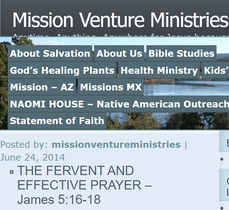James 5
James 5:1-2: Go to now, ye rich men, weep and howl for your miseries that shall come upon you.
2 Your riches are corrupted, and your garments are motheaten.
2 Your riches are corrupted, and your garments are motheaten.
James 5:4-13:
4 Behold, the hire of the labourers who have reaped down your fields, which is of you kept back by fraud, crieth: and the cries of them which have reaped are entered into the ears of the Lord of sabaoth.
5 Ye have lived in pleasure on the earth, and been wanton; ye have nourished your hearts, as in a day of slaughter.
6 Ye have condemned and killed the just; and he doth not resist you.
7 Be patient therefore, brethren, unto the coming of the Lord. Behold, the husbandman waiteth for the precious fruit of the earth, and hath long patience for it, until he receive the early and latter rain.
8 Be ye also patient; stablish your hearts: for the coming of the Lord draweth nigh
9 Grudge not one against another, brethren, lest ye be condemned: behold, the judge standeth before the door.
10 Take, my brethren, the prophets, who have spoken in the name of the Lord, for an example of suffering affliction, and of patience.
11 Behold, we count them happy which endure. Ye have heard of the patience of Job, and have seen the end of the Lord; that the Lord is very pitiful, and of tender mercy.
12 But above all things, my brethren, swear not, neither by heaven, neither by the earth, neither by any other oath: but let your yea be yea; and your nay, nay; lest ye fall into condemnation.
13 Is any among you afflicted? let him pray. Is any merry? let him sing psalms.
4 Behold, the hire of the labourers who have reaped down your fields, which is of you kept back by fraud, crieth: and the cries of them which have reaped are entered into the ears of the Lord of sabaoth.
5 Ye have lived in pleasure on the earth, and been wanton; ye have nourished your hearts, as in a day of slaughter.
6 Ye have condemned and killed the just; and he doth not resist you.
7 Be patient therefore, brethren, unto the coming of the Lord. Behold, the husbandman waiteth for the precious fruit of the earth, and hath long patience for it, until he receive the early and latter rain.
8 Be ye also patient; stablish your hearts: for the coming of the Lord draweth nigh
9 Grudge not one against another, brethren, lest ye be condemned: behold, the judge standeth before the door.
10 Take, my brethren, the prophets, who have spoken in the name of the Lord, for an example of suffering affliction, and of patience.
11 Behold, we count them happy which endure. Ye have heard of the patience of Job, and have seen the end of the Lord; that the Lord is very pitiful, and of tender mercy.
12 But above all things, my brethren, swear not, neither by heaven, neither by the earth, neither by any other oath: but let your yea be yea; and your nay, nay; lest ye fall into condemnation.
13 Is any among you afflicted? let him pray. Is any merry? let him sing psalms.
|
James 5:14-15:
Is any sick among you? let him call for the elders of the church; and let them pray over him, anointing him with oil in the name of the Lord: 15 And the prayer of faith shall save the sick, and the Lord shall raise him up; and if he have committed sins, they shall be forgiven him. |
Through intercessory prayer, we bring someone else’s needs before God, trusting God to take care of others, whether they are loved ones, friends, enemies, or total strangers.
|

What motivated Elijah to pray with such passion? First, his understanding of God moved him to pray earnestly. Elijah knew whom he was praying to. He knew that God has all power. He understood that the Lord could do the impossible. Elijah prayed earnestly because his faith was in God and not in his praying.
Each person’s understanding of God will determine their strength and perseverance in prayer. God has given us His mighty Holy Spirit to guide us in prayer and to teach us how we should pray. “In the same way, the Spirit helps us in our weakness. We do not know what we ought to pray for, but the Spirit himself intercedes for us though we do not know how to put our desires into words.” (Romans 8:26)
For many, God is “too small” and they doubt His power and ability. They lack in faith and their prayers are not answered. On the other hand those who grow in knowledge and understanding of almighty God, His greatness, sovereignty and holiness; learn how to pray fervently and effectively.
The situation that Elijah was living in and confronted with caused him to seek Gods guidance and direction; therefore, he waited on God to speak and answer his prayers. We should do the same. As we look around and see lost, wounded hurting people, it should lead us to pray earnestly. As we see people denying God’s Word and will, it should challenge us and stir us to pray with all our hearts. As we see the church powerless and ineffective, it should quicken our seeking of God.
On Mount Carmel, Elijah prayed seven times; the persistent friend at midnight pleaded until he received (Luke 11:5-8). The widow who kept coming to the unjust judge saying: ‘Grant me justice against my adversary,’ (Luke 18:1-5). These are examples of perseverance in seeking answers. So, if we believe the promise of God without doubting, we should pray until we receive the answer, remembering that only perseverance in prayer can triumph.
Keep in mind Elijah had the same nature we have but he prayed powerfully and effectively. We can do the same. If we learn to persevere in prayer, its fruit will be always more abundant, always more evident, and we shall obtain, as Jesus obtained, which shall bring honor and glory to the Father.
True power in our lives begins with humility. Humbling ourselves before Almighty God can result in His imparted Holiness to us. Consequently, holiness will bring healing, happiness, health, joy, courage, peace and eternal life. --Mission Ventures Ministries; The Fervent and Effective Prayer; 6.24.14
Each person’s understanding of God will determine their strength and perseverance in prayer. God has given us His mighty Holy Spirit to guide us in prayer and to teach us how we should pray. “In the same way, the Spirit helps us in our weakness. We do not know what we ought to pray for, but the Spirit himself intercedes for us though we do not know how to put our desires into words.” (Romans 8:26)
For many, God is “too small” and they doubt His power and ability. They lack in faith and their prayers are not answered. On the other hand those who grow in knowledge and understanding of almighty God, His greatness, sovereignty and holiness; learn how to pray fervently and effectively.
The situation that Elijah was living in and confronted with caused him to seek Gods guidance and direction; therefore, he waited on God to speak and answer his prayers. We should do the same. As we look around and see lost, wounded hurting people, it should lead us to pray earnestly. As we see people denying God’s Word and will, it should challenge us and stir us to pray with all our hearts. As we see the church powerless and ineffective, it should quicken our seeking of God.
On Mount Carmel, Elijah prayed seven times; the persistent friend at midnight pleaded until he received (Luke 11:5-8). The widow who kept coming to the unjust judge saying: ‘Grant me justice against my adversary,’ (Luke 18:1-5). These are examples of perseverance in seeking answers. So, if we believe the promise of God without doubting, we should pray until we receive the answer, remembering that only perseverance in prayer can triumph.
Keep in mind Elijah had the same nature we have but he prayed powerfully and effectively. We can do the same. If we learn to persevere in prayer, its fruit will be always more abundant, always more evident, and we shall obtain, as Jesus obtained, which shall bring honor and glory to the Father.
True power in our lives begins with humility. Humbling ourselves before Almighty God can result in His imparted Holiness to us. Consequently, holiness will bring healing, happiness, health, joy, courage, peace and eternal life. --Mission Ventures Ministries; The Fervent and Effective Prayer; 6.24.14
Intercessory prayers can be made for every “good gift” from God for the sake of the salvation of others. Such prayers can include petitions for every kind of blessing, both for the body and the soul. They can be made for the inspiration and instruction of men, as well as for their healing and salvation. Whatever one can ask for oneself, one can ask for all men. Whatever one does ask for oneself should be entreated for all. “It is right to pray not only for one’s own purification, but for the purification of every man . . .” (Saint Nilus of Sinai, 5th c., Texts on Prayer).
To understand intercessory prayer, one must remember the eternal providence of God. One must grasp the fact that God knows all things eternally and takes into consideration each act of man in His overall plan. With this perspective one can then see that even before the creation of the world, God has heard, or rather, more accurately, eternally hears, the cries of His people. He considers man’s prayers in all that He does in His dealings with men. Thus it is the case that God does not wait to see what we do or how we will pray. He considers our actions and prayers from the perspective of eternity. And in the light of our desires and deeds He sees that “all things work together for good for those who love God” (Rom 8.28).
If we understand this we can see how our prayers are considered by God, for ourselves and for others. We can understand as well how we can pray even for those who are dead, whose lives on this earth are over and done. For the Lord does not hear our prayers “after” something is finished, because for God there is no “after” at all. God knows what we ask before we even ask it, for He knows all of man’s life in one divine act of all-embracing vision and knowledge. Thus all of our prayers...are heard and considered by God before we even make them. If we fail to pray, this too is known to God, and it takes its effect in God’s plan of salvation. Therefore we have to “pray for one another” and our prayer will have “great power in its effects” through the eternal and providential action of God. -Orthodox Church in America
To understand intercessory prayer, one must remember the eternal providence of God. One must grasp the fact that God knows all things eternally and takes into consideration each act of man in His overall plan. With this perspective one can then see that even before the creation of the world, God has heard, or rather, more accurately, eternally hears, the cries of His people. He considers man’s prayers in all that He does in His dealings with men. Thus it is the case that God does not wait to see what we do or how we will pray. He considers our actions and prayers from the perspective of eternity. And in the light of our desires and deeds He sees that “all things work together for good for those who love God” (Rom 8.28).
If we understand this we can see how our prayers are considered by God, for ourselves and for others. We can understand as well how we can pray even for those who are dead, whose lives on this earth are over and done. For the Lord does not hear our prayers “after” something is finished, because for God there is no “after” at all. God knows what we ask before we even ask it, for He knows all of man’s life in one divine act of all-embracing vision and knowledge. Thus all of our prayers...are heard and considered by God before we even make them. If we fail to pray, this too is known to God, and it takes its effect in God’s plan of salvation. Therefore we have to “pray for one another” and our prayer will have “great power in its effects” through the eternal and providential action of God. -Orthodox Church in America
James 5:19-20:
19 Brethren, if any of you do err from the truth, and one convert him;
20 Let him know, that he which converteth the sinner from the error of his way shall save a soul from death, and shall hide a multitude of sins.
19 Brethren, if any of you do err from the truth, and one convert him;
20 Let him know, that he which converteth the sinner from the error of his way shall save a soul from death, and shall hide a multitude of sins.








